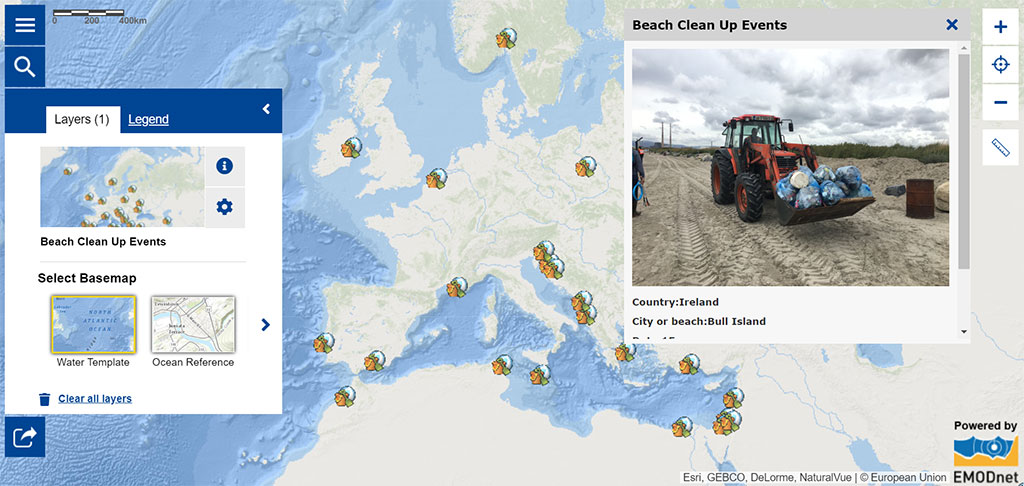#EUBeachCleanUp now on European Atlas of the Seas

date: 21/12/2018
Every year, some 8 million tons of plastic enter the sea. That rubbish is there to stay. Made to last, plastic can survive hundreds of years in the ocean environment. As it slowly degrades, plastic marine litter turns into microplastics, becomes ingested by animals and in turn enters the human food chain.
The EU is determined to solve this issue once and for all. On 18 December, EU institutions have agreed on new and ambitious legislation to curb marine litter from single-use plastics, as well as from derelict fishing gear. Through the various EU funds, innovative projects to reduce, reuse or recycle marine litter get EU support. Also in international forums such as the G7 and the UN, the EU is taking the lead and encouraging other countries to take action.
But public policy and legislation alone cannot solve this problem. Indeed, a clean ocean is the responsibility of all. Our way of purchasing, consuming and getting rid of our waste affects the entire planet.
By cleaning beaches, riversides and even cities, the EU representations and delegations (its embassies in EU and non-EU countries, respectively) have sent a strong statement. Let’s solve this issue now, together!
The #EUBeachCleanup campaign started on 11 September in Fiji and ran until 27 October in Singapore. The European External Action Service has summarized them all in this campaign video. A must see!
Curious to find out if an event has been organised in your country? Check out our great new map on the European Atlas of the Seas!
